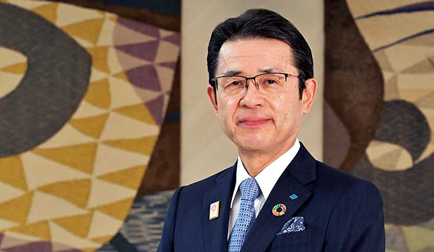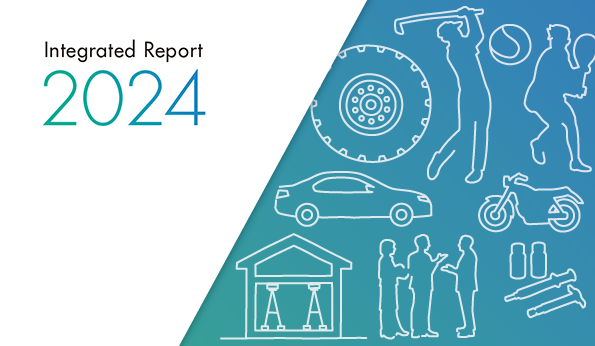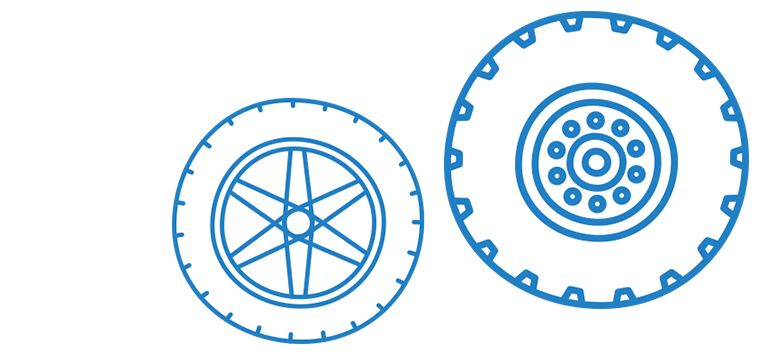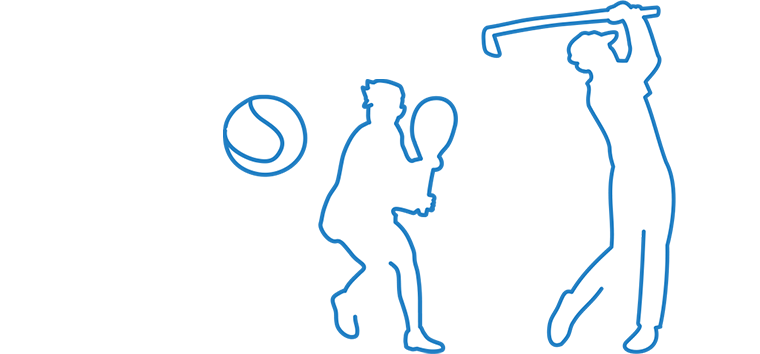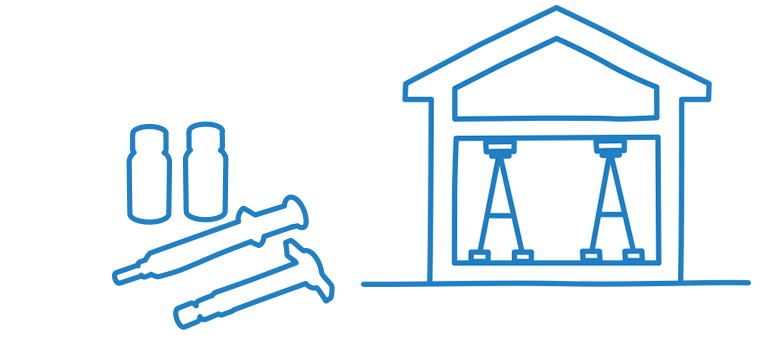Value Chain, External Environment, Risks and Opportunities
- The Sumitomo Rubber Group
Challenges, Risks, and Opportunities for Each Business Recognition of the Current Status of and Initiatives Undertaken by Our Value Chain
To ensure sustainable growth, we steadily link medium- and long-term business opportunities to growth while working to identify and mitigate risk factors that could impair such growth. In this section, we provide a brief discussion of risks and opportunities related to changes in the business environment going forward as well as the strengths we will leverage for future business development along with the current status of our value chain and our initiatives to address issues the value chain is now confronting.
Management Issues
- Maximizing the results that we reap from the global business framework while improving profit in North America
- Developing products to respond to local market needs and ever higher performance demands while expanding sales of advanced products
- Developing businesses compatible with CASE and MaaS
- Promoting sustainability management
| Strengths
|
- Technologies supporting the development of fuel-efficient tires and an extensive lineup of such tires
- Biomass material development technologies nurtured in the course of developing fossil resource-free tires
- The DUNLOP brand, which boasts over 130 years of history since commercializing the world’s first pneumatic tire and has won public recognition throughout the world
- A global business framework supported by three pillars (a global network of manufacturing, sales and service bases, a R&D network (Japan/USA/ Europe) and a global supply network)
- World-leading simulation and analysis capabilities utilizing state-of-the-art supercomputers and so on
SENSING CORE Business
- Deflation Warning System (DWS) technology developed over 20 year
- Possessing sensor-free technology ahead of other companies
|
| Growth Opportunities
|
- Robust demand for large-diameter tires for SUVs and light trucks in developed countries
- Growth in worldwide demand for tires, especially for EV tires
- Growing demand for tires with higher use of sustainable raw materials
and fuel-efficient tires due to the strengthening of environmental regulations applied to automobiles and ever-stronger public awareness regarding the need for environmental conservation on a global level
- Expanding all-season tire market due to global warming
- Advances in AI, IoT and other DX technologies
SENSING CORE Business
- Increased momentum for the conclusion of business negotiations due to the promotion of legislation in Japan and overseas
- Accelerated automated driving technology to help solve the driver shortage problem in the transport industry
- Growing demand for maintenance-free technology
|
| Risks
|
- Increasingly intense global competition associated with the development of tires using a greater proportion of sustainable raw materials, tires with lower rolling resistance and other products
- Economic stagnation due to pandemics and natural disasters★
- Intensifying market competition reflecting the rise of manufacturers from emerging countries
- Major fluctuations in raw material and crude oil prices as well as maritime transportation fees
- Political instability and other geopolitical risks★
- A shift in demand for winter tires reflecting rises in global temperatures and decreases in snowfalls
SENSING CORE Business
- Increased competition for technological development by multiple players with peripheral technologies
- Business opportunities lost due to delays in the search for co-creation business partners
※ Items that are also relevant to the SENSING CORE business are marked with ★.
|
| Initiatives Undertaken by the Sumitomo Rubber Group
|
- Expanding sales of advanced tires, including those for SUVs, in response to growth in demand
- Transitioning to a structure capable of securing earnings in North America
- Realizing the SMART TYRE CONCEPT, which informs the development of innovative tires and peripheral services
- Developing tires with a low environmental footprint
- Promoting tire-related solutions businesses
- Helping establish a circular economy
- Contributing to decarbonization through the provision of EV tires and fuel-efficient Tires
SENSING CORE Business
- Promoting business negotiations with OEMs in Japan and overseas (warning signs of wheel detachment, tire pressure, etc.)
- Promoting FMS business negotiations to the transport industry (failure prediction, etc.)
|
| Recognition of the Current Status of and Initiatives Undertaken by Our Value Chain |
|
Recognition of the Current Status |
Initiatives Undertaken by the Sumitomo Rubber Group |
| Product Development |
- Intensified product development aimed at reducing environmental impact
- Demand for CASE + sustainability-oriented technology development, new business building, etc.
SENSING CORE Business
- Widespread use of EV vehicles
- Accelerated adoption of safety-related software technology due to the increasing sophistication of automated driving support technology
- Possessing sensor-free technology ahead of other companies
- Added value based on sensing technology with a proven track record of over 20 years
|
- Increasing the content of sustainable raw materials (biomass and recycled raw materials) used in our products
- Developing all-season tires equipped with ACTIVE TREAD technology
- Promoting solutions businesses employing sensing technologies based on the TOWANOWA concept
- Using tire aerodynamics simulation to contribute to improving the fuel/ energy efficiency of EVs
- Promoting the TOWANOWA concept
SENSING CORE Business
- Expanding new sensor-free functions and promoting differentiation
- Product development for automakers in Japan and overseas and for used vehicles
- New developments for FMS businesses
- Promoting new product/service development with co-creation partners such as Viaduct Inc.
|
| Procurement |
|
- Compliance with the Sumitomo Rubber Group Sustainable Natural Rubber (SNR) Policy
- Introducing a natural rubber-specific risk assessment tool for sustainable procurement of natural rubber
- Conducting surveys on the status of supplier initiatives to address environmental risks
- Procuring EUDR-compliant natural rubber
- More diversified procurement sources and less reliance on specific regions
|
| Production |
- Impact of demand increases and decreases on production costs
- Demand for carbon neutrality
- Impact of labor shortages on stable operations
|
- Improving factory costs and productivity by reducing fixed costs and organizing the number of product sizes
- Maintaining complete zero landfill waste
- Expanding sales of retread tires and reusing waste tires
- Using hydrogen in production processes and introducing green energy
- Promoting replacement with automated, manpower-saving equipment
|
| Logistics, Sales, and Services
|
- Slowing growth in the global economy
- Profit impact of changes in ocean freight rates, raw material prices, exchange rate fluctuations, etc.
- Increased regulation stemming from the US-China conflict
- Introducing tariff barriers and anti-dumping duties
SENSING CORE Business
- Increased momentum for the conclusion of business negotiations due to the promotion of legislation in Japan and overseas
- Accelerated automated driving technology to help solve the driver shortage problem in the transport industry
- Growing demand for maintenance-free technology
|
- Increasing proportion of high value-added products
- Promoting stock efficiency by organizing DX and the number of product sizes
- Optimizing global production allocation taking into account logistics costs, tariffs, etc.
SENSING CORE Business
- Promoting business negotiations with automakers in Japan and overseas (warning signs of wheel detachment, tire pressure, etc.)
- Promoting FMS business negotiations to the transport industry (failure prediction, etc.)
|
Challenges, Risks, and Opportunities for Each Business Recognition of the Current Status of and Initiatives Undertaken by Our Value Chain
Management Issues
- Maximizing the results that we reap from the global business framework
- Developing products in response to local market needs and ever higher performance demands
- Strengthening efforts toward the enhancement of “DUNLOP” brand value and expanding the effect to the entire Sumitomo Rubber Group to generate synergies
| Strengths |
- Taking full advantage of expertise accumulated via tire development and thereby providing products and services that are backed and differentiated by superior technical development capabilities
- Building brands and product appeal that have been refined at professional tour tournaments
- Global marketing capabilities based on user needs
- Promoting sustainability management
|
| Growth Opportunities |
- Expanding business opportunities following the acquisition of trademark rights to the “DUNLOP” brand throughout the world
- Golf: Further business expansion in North America, the world’s largest market
- Tennis and other racket sports: Sales power we have cultivated in tennis balls, the brand power of Dunlop and our technical development capabilities
- Rising public awareness of health and fitness among citizens as the health-conscious millennial generation gains greater purchasing capabilities
|
| Risks |
- A cautious consumer sentiment regarding spending for recreational activities due to a lingering sense of future anxiety on the back of growing geopolitical risks and resulting economic instability
- Jumps in the prices of raw materials
- Deterioration in the outdoor sporting environment due to higher temperatures and other negative consequences resulting from climate change
- Decline in golf and tennis population due to low birthrate and aging population in the domestic market
|
| Initiatives Undertaken by the Sumitomo Rubber Group |
- Golf: Developing and expanding sales of advanced products under “XXIO,” “SRIXON” and “Cleveland Golf” brands, to this end upgrading their unique features to the fullest possible extent
- Tennis: Enhancing the brand value of “DUNLOP” by taking advantage of know-how regarding brand building in the field of golf equipment as well as our strong business foundations, which have enabled us to secure third place among tennis ball manufacturers worldwide
- Differentiating ourselves from other companies by developing products with lower environmental footprints
- Strengthening efforts towards the enhancement of “DUNLOP” brand value and expanding the effect to the entire Sumitomo Rubber Group to generate synergies
- Meeting growing demand for digital-driven services and products
|
| Recognition of the Current Status of and Initiatives Undertaken by Our Value Chain |
|
Recognition of the Current Status |
Initiatives |
| Product Development |
- Diversifying user preferences and needs, demanding functional and well-designed products
- Need for ethical consumption due to increased attention to corporate sustainability initiatives, such as the use of recycled materials and fair trade, and a growing awareness of environmental protection and respect for human rights
|
- Developing products and services that are backed and differentiated by superior technical development capabilities, such as the utilization of state-of-the-art supercomputers
- Developing high-performance products sensitively designed to appeal to and help users feel a greater sense of joy in sports
- Establishing development and marketing centers in Japan, Europe, and the US and building a system to catch market trends and commercialize them
- Developing products with even smaller environmental footprints, to this end enhancing product durability, developing biomass materials and incorporating recycled and other sustainable raw materials
|
| Procurement |
- Raw material supply insecurity and price fluctuations
|
- More diversified procurement sources and less reliance on specific regions
|
|
|
| Production/ Supply |
- Increasing demand for less environmentally hazardous production and services with regard to natural rubber, plastics, and chemicals
|
- Accelerating initiatives to reduce CO2 emissions and other environmental impacts at factories and wellness business bases
- Developing production sites and logistics systems capable of supplying high-quality products worldwide in a stable and efficient manner
|
| Logistics, Sales, and Services |
- Growing interest in sports and fitness due to increasing health consciousness
- Growing consumer interest in environmental responsiveness
|
- Reducing the use of plastic in packaging materials
- Expanding the development of digital-driven services and products
|
Industrial Products Business
Management Issues
- Enhancing research and development systems for high-value added products in terms of quality and functionality, based on rubber technology
- Accelerating efforts to seize growth opportunities through business expansion centered on the Japanese and other Asian markets
- Constantly optimizing our business portfolio in line with changes in society
- Promoting sustainability management
| Strengths |
- Wide-ranging operations
- Ability to develop technology using the Group's resources
- Product line-up for solving social issues
|
| Growth Opportunities |
- Expanding global pharmaceutical markets
- Increased awareness of disaster preparedness against typhoons and earthquakes
- Expanding market for environmentally friendly products and technologies due to increasing sustainability orientation
|
| Risks |
- Difficulties in resource allocation and efficient operation due to a large number of diversified commercial products
- Sharp rises in energy and raw material prices
- Sudden exchange rate volatility
- Supply chain fragmentation due to heightened geopolitical risks
- Shortage of labor
|
| Initiatives Undertaken by the Sumitomo Rubber Group |
- Expanding production capacities for rubber parts for medical applications in response to growing demand
- Contributing to earthquake countermeasures by expanding the use of vibration control dampers
- Constantly optimizing our business portfolio in line with changes in society
- Exploring new business fields that will better position us to meet future needs by fully taking advantage of the diverse resources afforded us by the Sumitomo Rubber Group’s wide-ranging operations
- Developing environmentally friendly products that use, for example, alternatives for organic solvents and incorporate biologically derived raw materials
|
| Recognition of the Current Status of and Initiatives Undertaken by Our Value Chain |
|
Recognition of the Current Status |
Initiatives |
| Product Development |
- Developing products that are safe and durable as well as environmentally friendly due to the growing interest in sustainability
- Increasing need for a comfortable living environment and countermeasures against natural disasters such as earthquakes and typhoons
|
- Engaging in verification testing in collaboration with the Ministry of the Environment and local governments to curb the dispersion of microplastics from artificial turf for sporting facilities
- Displaying the carbon footprint on the packaging of natural rubber gloves to promote their lower environmental impact compared to synthetic resin gloves
- Increasing the content of sustainable raw materials (biomass and recycled raw materials) used in our products
|
| Procurement |
|
| Production/ Supply |
- Soaring energy prices
- Demand for carbon neutrality
- Rising labor costs and labor shortages
|
- Accelerating initiatives to reduce CO2 emissions and other environmental impacts at factories.
- Ongoing initiatives to reduce total costs and improve productivity, including through automation and manpower saving.
- Expanding production capacity for rubber parts for medical applications
|
| Logistics, Sales, and Services |
- Increased demand due to the global expansion of pharmaceutical markets
|
- Optimizing selling prices
- Constantly optimizing our business portfolio in line with changes in society
- Improving logistics efficiency
|
